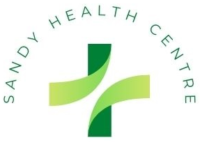We are continually looking to turn patient feedback into real improvements in the services we provide. We use it to focus on the things that matter most to our patients, carers and their families.
The practice welcomes patients’ comments and suggestions on how to improve on the services we offer our patients. We have a comment and suggestion box situated in the main entrance area; the box is checked regularly and the contents discussed at practice meetings. We also welcome feedback on anything that our patients feel we are doing well.
Giving feedback
To provide feedback:
Making a complaint
In the first instance please discuss your complaint with the staff member concerned. Where the issue cannot be resolved at this stage, please ask to speak to the office manager or the practice manager, who will try to resolve the issue. If your problem cannot be resolved at this stage and you wish to make a formal complaint please let us know as soon as possible, ideally within a matter of days. This will enable the practice to get a clear picture of the circumstances surrounding the complaint. If it is not possible to raise your complaint immediately, please let us have details of your complaint in writing within the following timescales:
- Within 12 months of the incident that caused the problem, or
- Within 12 months of the event, or
- Within 12 months of you realising that you have something to complain about.
The practice will acknowledge your complaint within three working days (or as soon as is reasonably possible) and you will receive a written summary and conclusion within ten working days (or as soon as is reasonably practicable). When the practice looks into your complaint it aims to:
- Ascertain the full circumstances of the complaint
- Make arrangements for you to discuss the problem with those concerned, if you would like this
- Make sure you receive an apology, where this is appropriate
- Identify what the practice can do to make sure the problem does not happen again
This part of the process is called ‘local resolution.’
If you need further advice, you can also contact NHS 111 or the local Citizens Advice Bureau.
A summary of complaints received throughout the year is discussed quarterly by the doctors and practice manager.
Complaining to other authorities
The practice management team hope that if you have a problem you will use the practice complaints procedure. However, if you feel you cannot raise your complaint with us, you can contact;
NHS England phone: 0300 311 22 33
NHS England is there to help you with any issues or worries you may have about a service you or someone you care for is receiving and to help resolve issues before they become complaints.
If you need help with making your complaint you can contact;
The Health Complaints Advocacy Services phone: 0845 456 1082
HCAS is a national service that supports people who want to make a complaint about their NHS care or treatment. Your local HCAS service can be found at; POhWER, Hertland House, Primett Road, Stevenage, Herts, SG1 3EE.
Ombudsman
If you remain unhappy with the response after local resolution and independent review, you can refer your complaint to the Parliamentary and Health Service Ombudsman who investigates complaints about the NHS in England. You can call the Ombudsman’s Complaints Helpline on 0345 015 4033. Millbank Tower, Millbank, London, SW1P 4QP.
Contacting the Care Quality Commission
If you have a genuine concern about a staff member or regulated activity carried on by this Practice then you can contact the Care Quality Commission.
Website: www.cqc.org.uk
Complaining on behalf of someone else
Please note that Sandy Health Centre keeps strictly to the rules of medical confidentiality. If you are complaining on behalf of someone else, the practice needs to know that you have their permission to do so. A note signed by the person concerned will be required.
The complaints procedure is reviewed annually.
